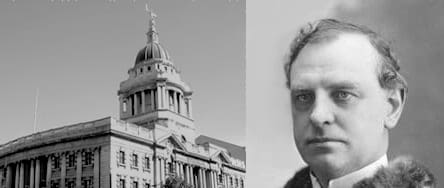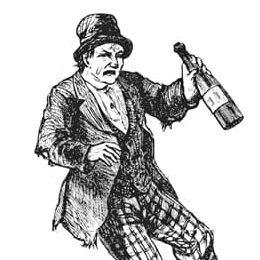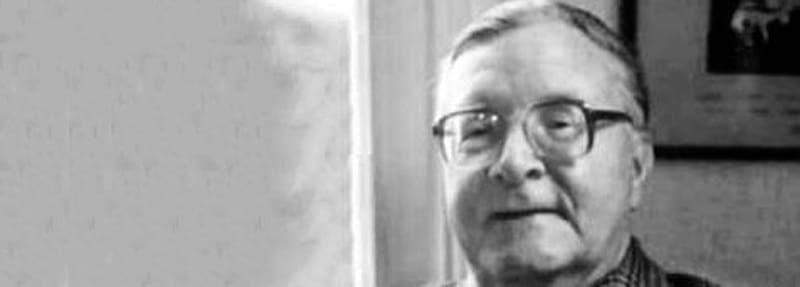(A longer read)
From information kindly supplied by Michael Harmer
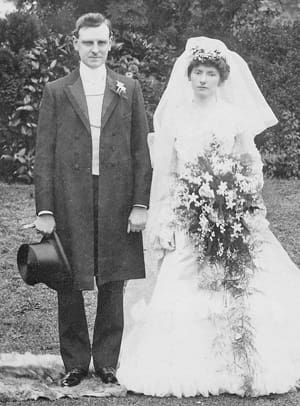
John Angus McDonald (the spelling was anglicised to ‘Macdonald’ when the family moved to England) was born on 27th December 1871 at the Easter Ross Union Poor House, Tain, Scotland. He was the fourth of seven children born to John Graham McDonald who was the master of the workhouse, mother Catherine being the Matron. John moved down to Ilkeston some time between 1891 and 1901 where he met Gertrude Woolliscroft whom he married on 23rd July 1902 in a Wesleyan ceremony. John was manager of the Midland Counties Bank Ilkeston Branch for five years before becoming Managing Clerk to a firm of estate agents in Nottingham. He later became a partner and the firm became ‘Kirk and Macdonald’ of Nottingham and Ilkeston.
In 1908 John was elected to Ilkeston Borough Council as a Conservative councillor. In November 1913 he was elected Mayor, re-elected in 1914 and served for a third term in 1915. He and Gertrude received King George V and Queen Mary when they visited Ilkeston on June 25th 1914 to open what became the Grammar School. In due course he became a Justice of the Peace as well as serving on Derbyshire County Council for nine years. In the new years honours of 1918 John was awarded the MBE. On the 10th January 1920 the King of the Belgians awarded him the “Palmes d’Or de l’Ordre de la Couronne” (Order of the Crown with golden palms, this Order being established to reward meritorious service to the Belgian state) for what he had done for the Belgians who had fled to this country during the first world war.
Gertrude was the daughter of Charles and Amelia Woolliscroft, her father being the proprietor of “Wooliscroft’s”, the large department store which occupied a block of shops on Bath Street between Station Road and Wilton Place. When John was elected Mayor in 1913 Gertrude became the Mayoress. She took an active role in the local community, supporting it through the first two years of the First World War. She was the Township Leader of the British Red Cross and was also responsible for the organisation of the Prisoner of War Fund, Comforts Fund and various other charities. At her own expense she placed a memorial in St Mary’s Church in memory of the prisoners of war who died in captivity. For organising the care of some 150 Belgian refugees during the war Gertrude was awarded the Queen Elisabeth Medal by the King of the Belgians in October 1918. A skilled amateur artist, between 1912 and 1928 Gertrude exhibited regularly and successfully not only with Ilkeston Arts Club but at a number of major galleries including at the prestigious Royal Academy Summer Exhibition of 1914. She also exhibited at the Nottingham Castle Gallery.
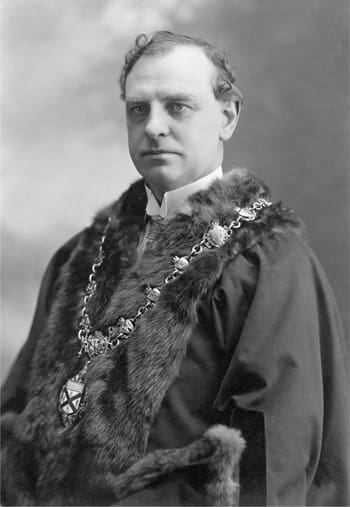
In February 1922 John Angus Macdonald was tried at the Old Bailey, London as an ‘extra’ in the drama of the “Jubilee Cotton Mills” case against Ernest Terah Hooley (of Risley Hall) along with Thomas Fletcher (alderman and ex-Mayor of Derby), Thomas Llewellyn Demery (Hooley’s former secretary), William Alfred Wallis (solicitor of Long Eaton) and Bertrand Breakspear (Hooley’s clerk). It was alleged that Fletcher agreed to purchase the Jubilee Mills business for £8,750 and that within two months the defendants had floated a company with a share capital of £150,000 and 30,000 debentures, that statements made between Fletcher and the company as to the assets were false, that Macdonald, Fletcher and Demery being directors issued false statements as to the financial position of the company, that an agreement was entered into to create a false market and to keep up the price by paying a sham dividend of 33 1/3 per cent. The trial lasted 22 days and the Judge’s summing up took eleven hours. The jury returned a not guilty verdict on all counts for Fletcher and Breakspear. Hooley, Wallis, Demery and Macdonald were found guilty of conspiracy; Hooley, Demery, and Wallis guilty of aiding and abetting; Macdonald and Demery guilty of fraudulently publishing a false statement in lieu of a prospectus and Hooley and Wallis guilty of aiding and abetting; also Hooley was convicted of obtaining money by false pretences.
The jury recommended that the court show mercy to John Macdonald. During the character statements at the end of the trial, he collapsed in the dock and was attended to by the warders. He was given a chair and remained seated until called upon to stand and hear his sentence. In his final comments the Judge said “Macdonald, the jury have given the strongest possible recommendation to mercy in your case, and I absolutely agree with them. Your case is entirely different from the others. You made nothing out of it; you did not dabble in the shares; you fell through weakness. I do not know if I am going too far, but I am going to act to the fullest possible extent on the recommendations that have been made, and I think I can trust you. You will be bound over in the sum of £500 to come up for judgement if called upon.” Macdonald appeared as if he were to faint again, but pulling himself together with an effort said: “Thank you my lord, I have never suffered so much in my life.” Hooley, who was an undischarged bankrupt, had been made bankrupt on two previous occasions and ten years before had spent a year in prison for fraud was sentenced to three years penal servitude.
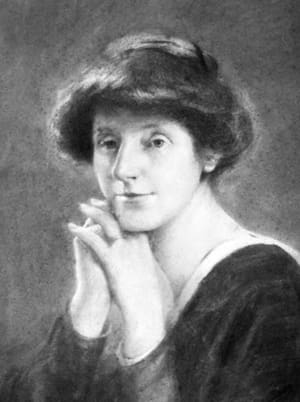
John and Gertrude had two sons, Donald Malcolm born 1905 and Ian Angus Alistair born 1904. Apart from a break in 1935 John remained a member of the council for the rest of his life, being made Alderman in 1945. He lived long enough that as the ‘father of the Council’ it fell to him to praise the late King George VI and move a loyal address to the new Queen Elizabeth II in February 1952. Gertrude died in 1948.
John Angus Macdonald died on 7th January 1953 at Ilkeston. The funeral was held at St Mary’s before interment at All Saints, Kirk Hallam. Apart from the seven family mourners, ten councillors, nine senior Town Hall staff, 39 Freemasons and at least 55 other friends and dignitaries attended. The Ilkeston Pioneer published a fulsome tribute (which did not mention the unfortunate business at the Old Bailey thirty years before).
“When a man of advanced years and great talents passes on it is stupid to say that we mourn his death: it is ours rather to praise, and if possible, to assess his life and attainments. So let it be with John Angus Macdonald, one of the most outstanding men Ilkeston ever produced. […] During these later years there has been a Churchillian flavour about Alderman Macdonald. Although an impenitent Tory, he became almost an institution. […] That his passing will be a loss both to the Council and to the Town, none will deny. He was more than a councillor: he was a statesman […] Ald. Macdonald’s conservatism was an integral part of his philosophy based on the wisdom of the ages that it is far better to stick to the good that we know rather than fly to “remedies” that may bring other unknown ills in their train. And it was for the good parts that he fought with unswerving tenacity. In his middle-life he was fiercely combative: a tireless worker, ambitious in the way all great men have to be ambitious, conscious of his own powers and possessed of a life force that never left him even as the years lengthened and his 80th birthday became a memory. He was 35 years of age when he first sought municipal honours and in that year […] was elected to the Ilkeston Town Council at a by-election in the Market Place. The speed with which he established himself in that assembly is indicated by the fact that in 1913 he was elected Mayor, re-elected in 1914 and re-elected for a third term in 1915, a record that has never been matched in the history of the Borough.
It was in the first term that he demonstrated his determination to be Chief Magistrate in fact as well as in name. In the Council Chamber there was a small but angry opposition to some of the measures considered necessary for vigorous prosecution of the war and Coun. Macdonald, as he then was, did not hesitate to call in the police to deal with disorder, with the result that when his nomination as Mayor for a second term of office was moved in November, 1914, Councillor William Smith publicly objected on the ground that Coun. Macdonald had used his power “atrociously.” […]
Ald. Macdonald used his war-time power ruthlessly to overcome obstruction and in it he had the overwhelming support of practically the entire Council. The following year, when proposing his re-election as Mayor for the third time, Ald. Woolley said that in the two preceding years, “Coun. Macdonald possessed an outstanding personality. He can be most autocratic if needs require it: or he can be the most democratic man among us.” […] Ald. Macdonald in expressing thanks for the unique honour the Council had done him, made a masterly speech reviewing the position and warning the Council that, in his judgment, things would be worse before the purposes for which Britain had unsheathed the sword were achieved. Great tribute was paid at this time to the great work that was being done by Mrs Macdonald, who, said Ald. Woolley, had been “her husband’s guardian and guiding angel” […] Her death three or four years ago broke up a devoted partnership which had lasted for nearly fifty years. […] Loyalty to the crown and the Constitution was, for Ald. Macdonald, almost a passion. As already indicated he was Mayor in 1914 when King George V and Queen Mary visited Ilkeston to receive a loyal address and to open the King George the Fifth Grammar School [sic]. […] It is difficult to pick out of his thousands of speeches any one that was more outstanding than another, his interests were so widespread and his capacity to say the right thing in the right way so unfailing. […] In masonry he found a deep symbolism that appealed to his spiritual needs. He was Master of the Rufford Lodge in 1908, […] He never missed a Lodge meeting if it was possible for him to attend and his memory for the lectures on traditional history was word perfect less than six months ago when unexpectedly called upon to deliver it.
Just under a year ago it fell to his lot as father of the council to pay tribute to the late King George the Sixth and to move an address of loyalty to Queen Elizabeth the Second. It was a characteristic oration, finely expressed and perfectly enunciated. […] And it is not without its moral that he continued his work as an accountant in the firm of Sir Charles Pain right up to the time of his last illness, travelling to Nottingham and back by bus each day. “I think he is a very great gentleman” said Coun. Mrs Rigley at the dinner over which Ald. Macdonald presided, given to her by Friends of Ilkeston, on her retirement from the Mayoralty some nine months ago. And a very great gentleman indeed, he was.”

